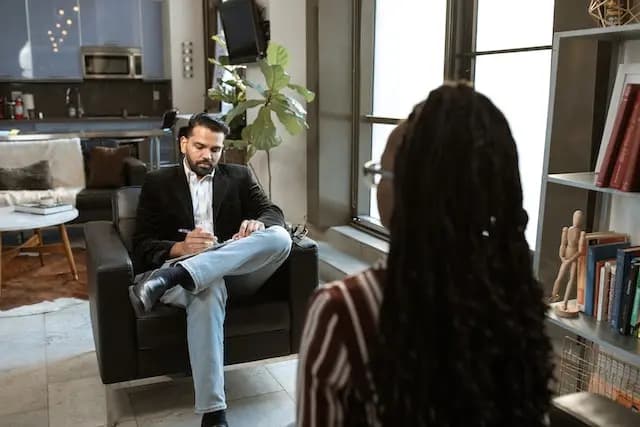B1/B2 Visa: What is your current job?

The US visa interview is a critical step in the application process for obtaining a US Visitor Visa (B1/B2 Visa). One of the most common questions applicants encounter during this interview is: "What is your current job?" The importance of this question lies in its ability to give insight into the applicant's ties to their home country and their intention to return. In this guide, we'll provide a detailed step-by-step approach to answering this question effectively.
Why is the Job Question Important?
Understanding the significance of this question can guide applicants to answer more strategically. The primary reasons for the question are:
Economic Stability: Demonstrates the applicant's financial ties to their home country. A stable job can suggest a higher likelihood of the applicant returning home after their visit.
Legitimacy: Confirms that the applicant is genuinely employed in the occupation they've mentioned in the application form.
Intention Verification: Assures the visa officer that the applicant's primary intention aligns with the travel visa’s purpose (business, leisure, or medical treatment) and isn’t seeking unauthorized employment in the US.
Step-by-Step Guide to Answering "What is your occupation?"
-
Be Precise and Honest: Always provide an honest answer. Remember, visa officers have access to vast amounts of information and can easily detect inconsistencies.
-
Provide Context if Necessary: If your job title isn't universally recognized or might be confusing, give a brief description of your role.
-
Mention Duration, If Relevant: If you've been in your current occupation for a significant amount of time, it can illustrate stability.
-
Discuss Your Responsibilities: This can help provide a more comprehensive understanding of your role and its significance.
-
Avoid Over-explanation: While it's good to be clear, avoid offering too much unsolicited information. Answer the question directly and wait for the interviewer to ask for additional details if needed.
Examples to Illustrate Different Scenarios:
- Traditional Employment:
"I am a Software Engineer at Zen Tech Solutions for the past 5 years, where I lead a team of developers to build mobile applications."
-
Self-Employed or Business Owner:
"I own a bookstore in Mumbai called 'Kala Reads'. We've been operating for over a decade, and I oversee everything from procurement to sales."
-
Unconventional Occupations:
"I'm a travel blogger and have been documenting my journeys on 'TravelTales' for the last three years. My work primarily involves traveling, writing, and collaborating with tourism boards and travel companies."
Sample Answers with Reasoning:
Answer 1: "I serve as a high school mathematics teacher at Delta High School, and I've been teaching there for 7 years."
Reasoning 1: This answer is straightforward and indicates a stable job position, suggesting ties to the home country.
Answer 2: "I am the CEO of Luna Creations, a digital marketing agency I founded in 2016. We cater to a variety of international and local clients, providing them with branding solutions."
Reasoning 2: This response not only conveys the applicant's occupation but also indicates entrepreneurial initiative and business ties to their home country.
Answer 3: "Currently, I'm a full-time doctoral student at Alpha University, where I'm researching sustainable energy solutions. I also work part-time as a research assistant in the same department."
Reasoning 3: This answer indicates the applicant's commitment to education in their home country, which can imply a higher likelihood of returning.
Addressing Questions Related to the Job
It's essential to understand that interviewers may not always ask the question in the exact same way. While the core intent remains similar, the wording might differ. Let's explore some of these variations to the job question and the best approaches to address them:
-
"How long have you been employed in your current position?"
Approach: This question seeks to understand the stability of your job. Start by stating your job title, followed by the duration.
Example Answer: "I've been a Pediatrician at HealthFirst Hospital for over eight years now."
-
"Describe the nature of your job."
Approach: Here, the focus is on the specifics of what you do. Go into a bit more detail about your day-to-day tasks, highlighting any significant responsibilities.
Example Answer: "As a Real Estate Agent with HomeMakers Realty, I assist clients in buying, selling, or renting properties. This involves market research, property evaluations, negotiations, and ensuring all legal aspects are covered."
-
"What does a typical day look like in your job?"
Approach: This version of the question is seeking a snapshot of your workday. Briefly outline the main tasks you'd perform on a regular day.
Example Answer: "Being a Project Manager at TechNova means each day is dynamic. Typically, I'd start with team meetings to set the day's agenda, oversee the development process, liaise with clients, troubleshoot any issues, and ensure we're on track with our milestones."
-
"How does your job connect to your visit to the US?"
Approach: This question tries to understand if there's a correlation between your occupation and the reason for your US visit. Make sure your answer aligns with the purpose stated in your US Tourist or B1/B2 Visa application.
Example Answer: "I'm a History Professor at Global University, and I specialize in American History. My visit to the US is to attend a conference on 'The Evolution of American Political Thought' and also to visit several historical sites for research."
Conclusion
Effectively answering questions about your occupation during the US Tourist Visa or B1/B2 Visa interview requires preparation and understanding the underlying intent. Whether addressing the question head-on or its various iterations, always focus on conveying the nature, stability, and relevance of your job in relation to your US visit. This transparency can significantly support your application, showcasing your genuine intent.




